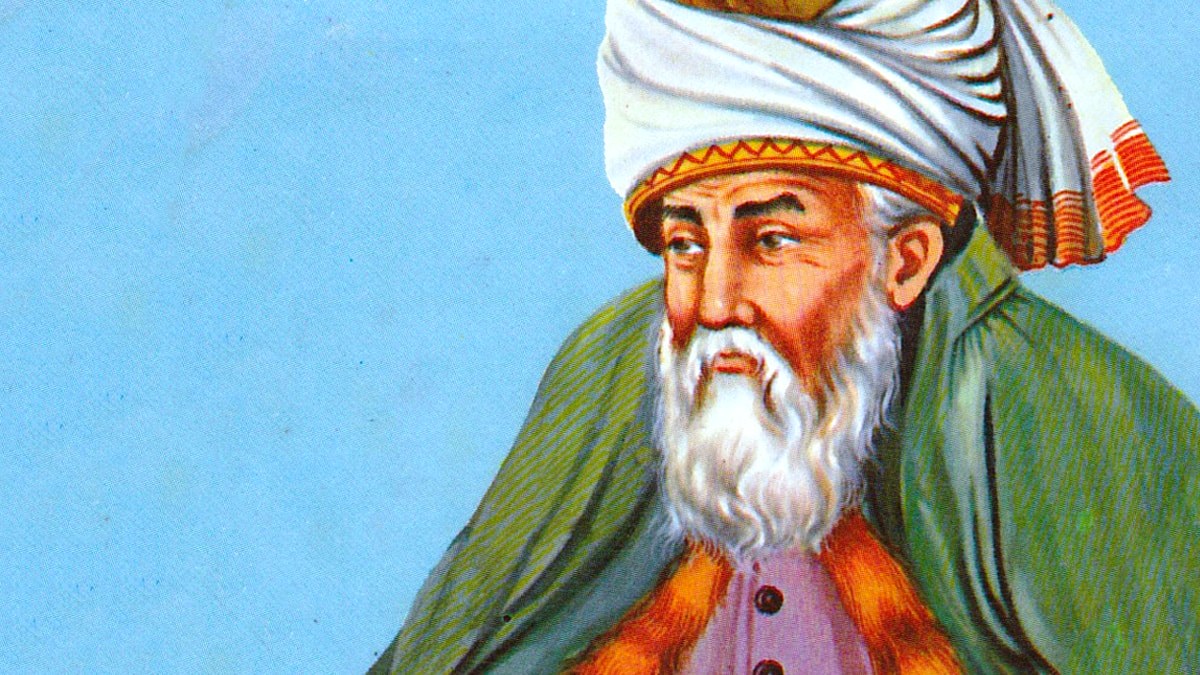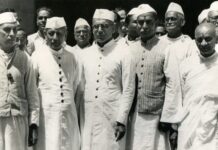 The first proposed litfest in Kashmir generated controversy amid concerns raised by a group of individuals and extreme Facebook-reaction to rumors of controversial writers attending. Two prominent Kashmiri authors had already decided against attending the ‘apolitical’ festival. Instead of allaying the concerns and engage the dissent, the organisers ‘cancelled’ the event. A Kashmir Life report.
The first proposed litfest in Kashmir generated controversy amid concerns raised by a group of individuals and extreme Facebook-reaction to rumors of controversial writers attending. Two prominent Kashmiri authors had already decided against attending the ‘apolitical’ festival. Instead of allaying the concerns and engage the dissent, the organisers ‘cancelled’ the event. A Kashmir Life report.
In the din of minor protests and firecrackers on Eid, Kashmir remained oblivious of a major development – the cancellation of Harud, the Autumn Literature Festival that was scheduled to held in Srinagar Sept 25-26. This was to be hosted by the Delhi Public School, Athwajan with certain segments being organized at the University of Kashmir campus. The festival was the initiative of author NimitaGokhle in partnership with Sanjoy Roy’s Teamwork Productions which organizes the well established Jaipur Literary Festival.
On the Kashmir beat, this litfest remained the most debated issue for last one fortnight. While all the major publications extensively covered the ‘controversy’ – with one of the magazines actually taking it on cover, it generated thousands of gigabits of data on the web. Kafila, one of the websites was the main address to host the latest on the highly debated issue.
When the schedule of the event was splashed on Times of India front pages in July announcing ‘Kashmir Valley turns a page, starts a literature fest’, it looked like any other event. The report talked of all the bigwigs on either side of the Redcliff divide and even hinted at even ‘Salman Rushdie might drop by’. It offered a detailed account of how the rise of Kashmir’s young writers – Basharat Peer, WaheedMirza and Sidharat Gigoo – have literally triggered a stampede among young Kashmiris eager to tell their stories. It was the best piece that the organizers might have got in India’s first newspaper.
A number of local authors, poets and poetesses, artists were longing to be part of the exercise. Festival organizers did not reveal the list of the invitees but insisted that of around 50 invited, 46 had confirmed their participation. Almost half of them were from J&K alone.
But the crisis embraced the initiative many days later when 14 authors, academics, journalists and filmmakers wrote an open letter endorsed by the author of Curfewed Night Basharat Peer and WaheedMirza of The Collaborator fame – now in the 10 long listed nominations for the Guardian’s first book award. The two best known Kashmiri authors had already decided against participating in the event. They took strong exception to the description of the festival being apolitical. “The organisers have said the event will be apolitical. So what would I do if I was there? What would I read? Every page I have written is political,”Mirza was quoted saying in a Guardian article.
Peer had something more to add. He told Kashmir Life that his decision against participating in the event came from the hosts and sponsors of the event who he believes cannot be neutral. “I was the first person to have done a reading in Srinagar and I am willing to participate in any such event even if a small bookstore organizes it,” Peer said. “But authors can not participate in events sponsored by individuals having links with political parties and if I had agreed to attend this festival I should no qualms to participate in events that RSS or any other political outfit organized tomorrow.”
 The word spread and many like-minded people bonded together. It eventually led to the posting of an open letter by 14 individuals including writers, journalists, filmmakers and artists, among others that appeared on Kafila. Within days the number surpassed 200.
The word spread and many like-minded people bonded together. It eventually led to the posting of an open letter by 14 individuals including writers, journalists, filmmakers and artists, among others that appeared on Kafila. Within days the number surpassed 200.
The letter questioned the motives of the exercise at a place that is highly militarized and where many basic freedoms are denied.
In the rush, however, the initial signatories failed to consult some of the people who might have been supportive of the idea but were left out. A case in point is Iftikhar Geelani, the erstwhile Kashmir Times correspondent who spent seven months in Tihar under Official Secrets Act (OSA). After getting freed, he wrote his Jail Diary that by now is translated into four languages – Urdu, Hindi, Malyalam and Assamese. In fact Penguin India used his book’s Urdu translation to start its foray’s into Urdu publications. Parts of the book are included in the curriculum of media especially legal and crime reporting in Kerela and Madhya Pradesh. But that did not prevent one of the extreme reference of the OSA’s misuse from saying a big no to the festival organizers when he received an invite.
Most of the local poets, short story writers and the language activists also felt left out. In the fierce debate, some of them ended up trying the appease organizers as well as those who had publicly stated they would not participate. “It was not a campaign but decisions taken at individual levels,” said one of the signatories. “We put up what we stood for and there were people who felt the same and became part of it. We sought clarifications but did not call for a boycott.”
Organizers responded to the open letter. Barring their clarification that it was not funded by the government, the curt response did not offer many details. Observed ShivamVij, one of the signatories who is also affiliated with Kafila website: “Their (orgnaizer’s) response did not address those concerns. They even refused to withdraw, leave alone apologise for, the offensive word “apolitical”, or explain how they planned to be “apolitical” while “celebrating” literature in the midst of unmarked graves, militarised bazars and lanes, draconian laws, imprisoned teenagers and the state’s refusal to dispense justice.”
It triggered a set of questions about the funding, guest list, choice of venues and many other aspects of the exercise. It was responded by silence. Asserting Kashmir is not Jaipur, Najeeb Mubarki, an Assistant Editor with The Economic Times and a signatory of the letter observed: “As for the fest being a “platform for free speech and expression”, as our letter asked, will certain political expressions in Kashmir, which are the core reality there, be aired in the fest? Will a guarantee of such freedom of expression, without anyone being (sic) hounded, be put forth?”
The response came a day later when the organizers announced indefinite postponement of the event citing security concerns. “Born out of the best intentions to platform work of emerging and established writers in Kashmir, the festival has been hijacked by those who hold extreme views in the name of free speech. A few people who began the movement to boycott the festival have no qualms in speaking on and about Kashmir across international forums, but have refused to allow other voices, including writers, poets and theatre people from the Valley and across India to enjoy the right to express themselves at the Harud festival,” the statement said.
“If those opposing the festival truly believed in free speech, they would have allowed this forum to go ahead and would come and express their dissent at the festival. They could have put to test their claims that the festival would not allow for free speech and expression.”
Apparently, the organizers were reacting to a Facebook page that was born within days of the announcement of the Litfest. It was fierce in its reaction to the idea of the festival. The rediscovery of the Times of India information that ‘Rushdie might drop by’ added vitriol to the fire in the virtual world. The organizers had skipped reacting to the Times of India report for one complete month. “Why did they allow the “speculation” to gain circulation in Kashmir for a whole month? And if it was not a deliberate decision to not deny the speculation about Rushdie, why did the 27 August press release blame the speculation on a Facebook group and not The Times of India?” asked Shivam Vij, one of the signatories of the letter.
 Explains Mubarki: “…many of us do have the concern that these rumours on Mr Rushdie were created precisely so as to arouse reactions from sections in Kashmir, which reaction would then be used to present the bogey of ‘Islamic intolerance’ in Kashmir.”
Explains Mubarki: “…many of us do have the concern that these rumours on Mr Rushdie were created precisely so as to arouse reactions from sections in Kashmir, which reaction would then be used to present the bogey of ‘Islamic intolerance’ in Kashmir.”
Some of the local authors were keen that the festival must take place. A newspaper report suggested that to ally fears of the organizers that the event would trigger violence, they had tried their bit and sought an appointment with the chief minister Omar Abdullah. But the meeting could not take place. Though an assault on the event is a far-fetched possibility, the organizers chose to take the security route, cancel the event and blame the people who had sought certain clarifications. On the face of it, it seems a simple case of demonizing dissent.
Writing in Live Lounge, Supriya Nair believes the reaction to the festival was non-conciliatory but not extreme as the organizers claimed. “If the organisers thought that “those opposing the festival” should have “allowed this forum to go ahead and [expressed] their dissent at the festival” — then why not keep the festival on, and engage with their concerns?” she asked. “How could a peaceful interrogation of the festival’s principles be equated with a “denial of free speech” to those not part of a “vocal minority”? Surely the only way to deny speakers at the festival a chance to air their views would be to — cancel the festival?”
Notwithstanding their repeated assertions that the initiative was sincere, the festival organizers let their supporters down. They sacrificed the majority they were claiming were for the festival for a “vocal minority” and perhaps that exposed the sincerity of purpose.
While the lid is on the festival for the time being, a vast section of the population here is now keenly interested to find out answers to two key questions. Why, all of a sudden, is the mainland writing and publishing bogey so interested in Kashmir after remaining indifferent for all these years? And why a school is increasingly expanding its extra-curricular activities?















